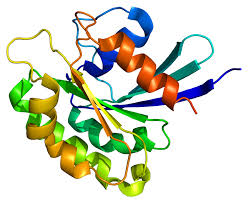
Computational Structural Bioinformatics Workshop 2025
October 12, Philadelphia, PA
co-located at ACM BCB 2025, October 12-15
- CSBW 2025 Program: CSBW 2025
- Photos: TBA
- Call for Papers: CFP
- Manuscript Submission:
2224 August 2025 | Important Dates - Author Guidelines: double-column ACM SIG conference format
- Submission link: https://easychair.org/conferences?conf=csbw2025
- Registration: TBA
Accepted papers will be published in a peer-reviewed proceedings alongside those of ACM-BCB. The peer review process will involve CSBW's program committee members; acceptance decisions will be made using EasyChair's scoring and confidence review capabilities. Authors of accepted papers will have the opportunity to give a 20-minute oral presentation of their work, followed by a Q&A session. At least one author of each accepted paper must register for the workshop for the manuscript to be included in the official conference proceedings.
Submissions will be via EasyChair. We also will welcome manuscripts withdrawn after the first-round review of the main conference for possible inclusion in the workshop program. Announcements and requests for final camera-ready submissions will be communicated via EasyChair.
Discussions are underway with several journal editors to solicit a special issue for CSBW 2025. In past CSBWs, special issue submissions have appeared in Bioinformatics Advances, Biomolecules, Molecules, Journal of Computational Biology, and BMC Structural Biology.
The annual workshop brings together researchers and their students with interets in structural bioinformatics. Topics of interest, but not limited to, include the following:
- Structure representation, prediction, and alignment
- Interaction and docking
- Molecular dynamic simulations
- Biomolecular graphics
- Coarse-grained modeling
- Data mining of structural data
- Structural genomics, and optimization in structural problems
- High-performance computing in modeling
- Graph theory applied to structural problems
- Bio-molecular structure refinement
- Structure-based drug design
- Applications of AI in structural biology, such as deep learning for structure prediction, generative modeling, protein design, and structural data analysis (e.g., cryo-EM, NMR, X-ray)